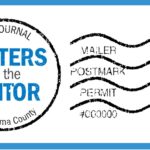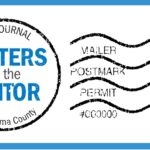New York drivers are being strongly advised to avoid operating certain Ford vehicles due to a potentially dangerous brake system issue. The National Highway Traffic Safety Administration (NHTSA) and Ford Motor Company have issued a “Do Not Drive” warning for over 2,300 heavy-duty pickups, highlighting a critical safety concern that requires immediate attention.
The vehicles affected include the 2025 models of the Ford F-550 SD, F-450 SD, F-350 SD, and F-250 SD. The recall involves 2,345 units, all of which may have a defect in the hydraulic brake system that could lead to complete brake failure. This warning is particularly urgent for New Yorkers who rely on these vehicles for daily transportation or work-related tasks.
Understanding the Brake System Issue
The core of the problem lies in the brake booster pushrod retaining spring, which may not have been installed during manufacturing. This omission can lead to the pushrod disconnecting from the brake pedal, resulting in a sudden and complete loss of brake function. The NHTSA has emphasized the severity of this issue, urging owners not to drive their vehicles until the necessary repairs have been made.
“The brake booster pushrod retaining spring may not have been installed, which can allow the pushrod to disconnect from the brake pedal and cause a sudden loss of brake function,” the NHTSA states.
All affected vehicles were produced in 2025, underscoring the need for immediate action by owners to ensure their safety and the safety of others on the road.
Broader Recall Trends and Implications
This development follows a series of recalls by Ford, including a recent recall of approximately 1.1 million vehicles due to a rearview camera software issue. The affected models in that recall span from 2021 to 2025 and include popular models such as the Bronco, F-150, Edge, Mach-E, Transit, and Mustang. This pattern of recalls highlights ongoing challenges in vehicle manufacturing and quality control.
Meanwhile, other automakers are facing similar issues. Honda and Acura have also recalled around 260,000 vehicles due to braking system concerns. Such widespread recalls across the industry point to a growing need for enhanced safety protocols and more rigorous quality checks in vehicle production.
Expert Opinions and Industry Reactions
Automotive safety experts are weighing in on these developments, noting that while recalls are not uncommon, the frequency and scale of recent recalls are concerning. According to industry analyst Mark Thompson, “The automotive industry is under tremendous pressure to innovate and meet consumer demands, but safety must remain the top priority. These recalls serve as a reminder of the importance of thorough testing and quality assurance.”
Consumers are advised to stay informed about recalls and to promptly address any notices they receive from manufacturers. The NHTSA’s website provides a comprehensive resource for checking vehicle recall status and obtaining further information.
Looking Ahead: Safety and Consumer Confidence
The implications of these recalls extend beyond immediate safety concerns. They also affect consumer confidence and brand reputation. For Ford, addressing these issues swiftly and transparently is crucial to maintaining trust with its customer base. The company has committed to providing free repairs for all affected vehicles and is working closely with dealerships to expedite the process.
As the automotive industry continues to evolve with advancements in technology and design, the balance between innovation and safety will remain a critical focus. Consumers are encouraged to remain vigilant and proactive in ensuring their vehicles are safe and compliant with the latest safety standards.
For New Yorkers, the message is clear: heed the warnings, prioritize safety, and stay informed. As the situation develops, further updates will be provided to ensure that all affected vehicle owners can take the necessary steps to protect themselves and others on the road.
About The Author
 Discover Chicago’s Top 10 Filipino Restaurants: A Culinary Journey
Discover Chicago’s Top 10 Filipino Restaurants: A Culinary Journey WNBA Expansion Plans Spark Debate Amid Concerns from Players
WNBA Expansion Plans Spark Debate Amid Concerns from Players Controversial Traffic Calming Proposal Sparks Debate in Durango
Controversial Traffic Calming Proposal Sparks Debate in Durango Controversial Traffic Calming Plan Sparks Debate in Durango
Controversial Traffic Calming Plan Sparks Debate in Durango Elon Musk and Donald Trump: A Complex Relationship Unveiled
Elon Musk and Donald Trump: A Complex Relationship Unveiled